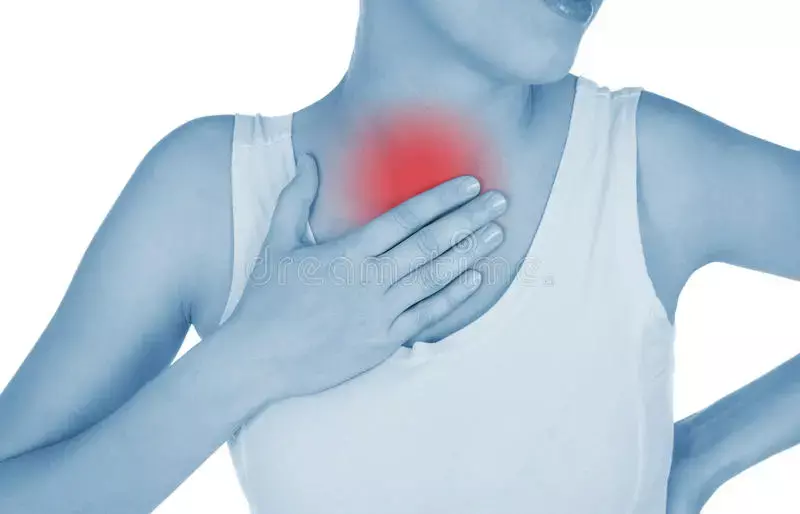- Home
- Medical news & Guidelines
- Anesthesiology
- Cardiology and CTVS
- Critical Care
- Dentistry
- Dermatology
- Diabetes and Endocrinology
- ENT
- Gastroenterology
- Medicine
- Nephrology
- Neurology
- Obstretics-Gynaecology
- Oncology
- Ophthalmology
- Orthopaedics
- Pediatrics-Neonatology
- Psychiatry
- Pulmonology
- Radiology
- Surgery
- Urology
- Laboratory Medicine
- Diet
- Nursing
- Paramedical
- Physiotherapy
- Health news
- Fact Check
- Bone Health Fact Check
- Brain Health Fact Check
- Cancer Related Fact Check
- Child Care Fact Check
- Dental and oral health fact check
- Diabetes and metabolic health fact check
- Diet and Nutrition Fact Check
- Eye and ENT Care Fact Check
- Fitness fact check
- Gut health fact check
- Heart health fact check
- Kidney health fact check
- Medical education fact check
- Men's health fact check
- Respiratory fact check
- Skin and hair care fact check
- Vaccine and Immunization fact check
- Women's health fact check
- AYUSH
- State News
- Andaman and Nicobar Islands
- Andhra Pradesh
- Arunachal Pradesh
- Assam
- Bihar
- Chandigarh
- Chattisgarh
- Dadra and Nagar Haveli
- Daman and Diu
- Delhi
- Goa
- Gujarat
- Haryana
- Himachal Pradesh
- Jammu & Kashmir
- Jharkhand
- Karnataka
- Kerala
- Ladakh
- Lakshadweep
- Madhya Pradesh
- Maharashtra
- Manipur
- Meghalaya
- Mizoram
- Nagaland
- Odisha
- Puducherry
- Punjab
- Rajasthan
- Sikkim
- Tamil Nadu
- Telangana
- Tripura
- Uttar Pradesh
- Uttrakhand
- West Bengal
- Medical Education
- Industry
Bronchiolitis tied to respiratory morbidity that persists into young adulthood

Bronchiolitis is tied to respiratory morbidity that persists into young adulthood, according to a recent study published in the BMJ Open Respiratory Research.
Hospitalisation for bronchiolitis is a risk factor for asthma and impaired lung function during childhood, but outcomes in young adults are poorly described. Our primary aim was to study the prevalence of asthma and atopy, and lung function at 17–20 years of age after bronchiolitis in infancy and, secondarily, the impact of viral aetiology (respiratory syncytial virus (RSV) vs non-RSV) and sex on these outcomes.
This Norwegian cohort study enrolled 225 young adults hospitalised for bronchiolitis in infancy during 1996–2001 and 167 matched control subjects. The follow-up included questionnaires for asthma and examinations of lung function and atopy. Outcomes were analysed by mixed effects regressions.
Results of the study are:
- Current asthma was more frequent in the post bronchiolitis group versus the control group: 25.1% (95% CI 19.0% to 31.2%) vs 13.1% (95% CI 7.9% to 18.2%), but not atopy: 44.3% (95% CI 37.1% to 51.5%) vs 48.2% (95% CI 40.5% to 55.8%), adjusted predicted proportions (95% CIs).
- Asthma prevalence did not differ between the RSV group and the non-RSV group: 24.0% (95% CI 16.1% to 32.0%) vs 23.8% (95% CI 12.8% to 34.7%) nor between sexes.
- Forced expiratory volume in 1 s (FEV1), the ratio FEV1/forced vital capacity (FVC), and forced expiratory flow between 25% and 75% of FVC, were lower in the post bronchiolitis group.
Thus, young adults hospitalised for bronchiolitis had higher prevalence of asthma, but not atopy, and a more obstructive lung function pattern than control subjects. The asthma prevalence was high after both RSV bronchiolitis and non-RSV bronchiolitis, and there was no difference between sexes. Bronchiolitis in infancy is associated with respiratory morbidity persisting into young adulthood.
Reference:
Asthma, atopy and lung function in young adults after hospitalisation for bronchiolitis in infancy: impact of virus and sex by Karen Galta Sørense et al. published in the BMJ Open Respiratory Research.
http://dx.doi.org/10.1136/bmjresp-2021-001095
Dr. Shravani Dali has completed her BDS from Pravara institute of medical sciences, loni. Following which she extensively worked in the healthcare sector for 2+ years. She has been actively involved in writing blogs in field of health and wellness. Currently she is pursuing her Masters of public health-health administration from Tata institute of social sciences. She can be contacted at editorial@medicaldialogues.in.
Dr Kamal Kant Kohli-MBBS, DTCD- a chest specialist with more than 30 years of practice and a flair for writing clinical articles, Dr Kamal Kant Kohli joined Medical Dialogues as a Chief Editor of Medical News. Besides writing articles, as an editor, he proofreads and verifies all the medical content published on Medical Dialogues including those coming from journals, studies,medical conferences,guidelines etc. Email: drkohli@medicaldialogues.in. Contact no. 011-43720751


